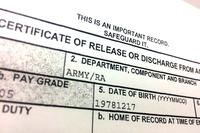An experimental program for a drug treatment that uses an ingredient found in Ecstasy to treat post-traumatic stress disorder will likely begin processing applications in June, officials said.
With the Food and Drug Administration's approval, a California-based nonprofit has used low doses of the drug, known as MDMA, in a series of trials in an attempt to offer a cure for PTSD.
Two-thirds of the 107 patients who took part in the Phase 2 trials, which started in 2000, no longer met the criteria of having PTSD a year after their MDMA treatment was completed, officials running the study said.
The much larger Phase 3 study received FDA approval late last year. Depending on the size of the trial, which is still awaiting the FDA's direction, 230 to 400 new participants will be exposed to doses of MDMA or a placebo during three in-patient sessions with medical researchers.
The trials will be conducted by the non-profit Multidisciplinary Association for Psychedelic Studies, based in Santa Cruz, California, and will cost the organization about $25 million, said Brad Burge, a spokesman. If approved by the FDA, the drug could be available for inpatient-only prescription use as early as 2021.
Critics have worried that the use of MDMA to treat PTSD or publicity about the treatment could result in higher illegal Ecstasy use and attempts to self-medicate with the street drug. Burge, however, emphasized that Ecstasy and MDMA are not the same drug. While Ecstasy sometimes includes MDMA, Ecstasy can also be found without any MDMA in the compound -- and there's no way for a casual user to tell the difference.
"We really don't want to encourage people to go out and use Ecstasy and think of that as therapy," he said.
Burge hopes that the Trump administration's statements of support for veterans and deregulation of the FDA will transfer to supporting the MAPS drug trials and faster approval of the treatment as a prescription drug.
In the past, the Department of Veterans Affairs has not supported the MDMA studies or other research surrounding the use of marijuana to treat PTSD, but Burge says his organization sees veterans as a key demographic for the study and treatment. He said if the drug trials are successful, the ability to treat and cure PTSD could save the government billions over time.
"It's just absolutely crucial for us to be able to reach veterans and military families with this," he said. "This is both a promising treatment in the form of its application where it's just a few administrations, but it’s also extremely economical."
He added, "Just look at PTSD veteran disability payments -- they're huge, and the cost savings for taking people off of their prescription opiates through just a few administrations of MDMA could save the VA and Defense Department billions of dollars."
Patients wishing to take part in the drug trial can visit the MAPS website and sign up for its newsletter, Burge said. That list will be used to notify those interested when the application process for the Phase 3 trials opens.
This article was updated to reflect a change in the amount the DoD or VA may save should a MDMA treatment be permitted by the FDA, the level of MDMA used in clinical trials and the timing for new applicantions.
-- Amy Bushatz can be reached at amy.bushatz@military.com.






























